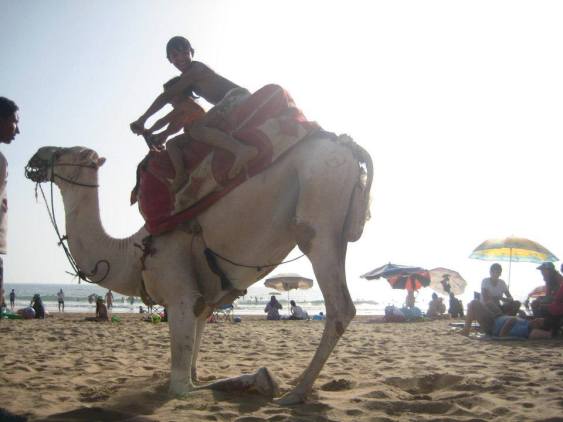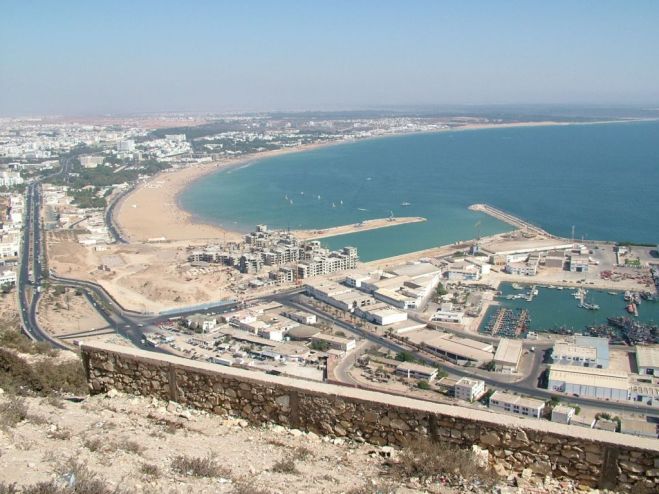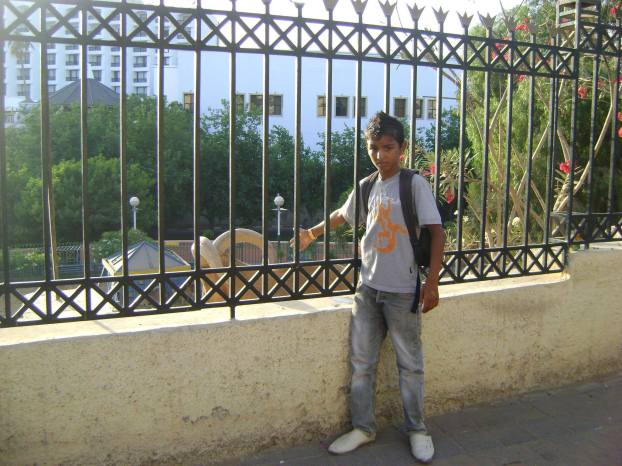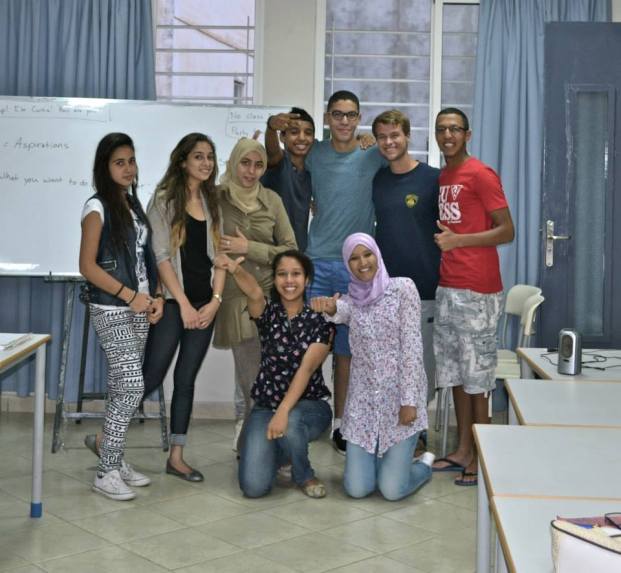My name is Walid Moufad. I am seventeen years old, and I am living in the Center for the Protection of Children in Meknes, Morocco. The Center primarily works as a home for juvenile delinquents, kids that have committed small crimes. I have committed no crime, but I live there because the Center also houses children that have nowhere else to go. We are essentially foster children without the hope of adoption. We live in the Center, behind locked doors and barred windows, until we are eighteen.
The scars on my face, the cigarette burns on my hands, and the lacerations on my back help begin the story of how I ended up here at the Center. My mother gave them to me. She started hitting me when I was five years old, she would beat me at least once a week. On one of the major holidays in Morocco, Eid, she burned my hands with cigarettes, permanently marking the skin. This happened when I was seven. By the time I had turned twelve, my step-father divorced my mother and took me away from her so that she could no longer beat me.
I lived in Agadir at the time, a beautiful beach resort village in the Southern part of Morocco, and when my father divorced my mother I moved to Casablanca. There, he enrolled me in the French School in Casablanca, a prestigious institute that is not only expensive, but extremely difficult to test into, and I was accepted. I loved my step-father very much, but I only lived with him for two years before he lost a battle with lung cancer. After he passed away, I was left with limited options. Some friends of my step-father opened their home to me. I stayed with them for a week, but I was too much of a burden on them, so I decided I would find my mother again.
I took a bus from Casablanca to Agadir, and found my way back into my mother’s home. In three days’ time, she started hitting me again. After four months, I decided I had enough. I left her house and started living on the streets. I lived on the streets for close to twenty days, until a teacher from my school saw me. Mr. Merwza was my 8th grade science teacher, and he asked what it was I was doing on the streets. I told him everything, and he decided to take me into his home.
Mr. Merwza and his wife believed in more traditional and conservative interpretations of Islam. This interpretation included provisions about male non-blood relatives congregating with females within the house. What this translates to is that I could not see Mr. Merwza’s daughters within their own home and I rarely saw Mrs. Merwza. Eventually, the strain and pressure this put on both the family and myself was too much. I had been living with the Merwza’s for around a year and a half, when Mr. Merwza proposed to me a new living arrangement. What he proposed was the Center for the Protection of Children in Agadir, feeling as a burden to the family both financially and psychologically, I agreed to go to the center.

Walid could see the teacher’s daughters outside the home. This is him and one of the girls on a beach.
The Center for the Protection of Children is not a bad place. I get three meals a day, a bed and blankets, and, if you are there at the beginning of the school year, they will send you to school. Regardless, it still was not a pleasant place to live. I never had any privacy. The doors are always left locked, and I hardly ever had contact with the outside world. The other boys came from situations that were as unfortunate as mine. Still though, these boys would steal from me and bully me, and never leave me alone. After one year at the Center, I decided to try to find a better option on my own and I ran away.
I ended up back on the streets of Agadir again. I was on the streets again for close to a month. One night I was walking with my friend, Otman, on the beach of Agadir, a place where many of the homeless children go. As we were walking, a drunk teenager recognized Otman and attacked him with a knife. I tried to separate the two, but the attacker turned on me. This ended when he slashed my throat. The teenager ran away as my friend went to get the police. I was certain I would die, and I even saw the infamous light. Fortunately, the police came in time, and took me to the hospital.
The doctor’s hurriedly stitched up the slash on my throat, and this hurried job has left me with a permanently pink scar against my dark skin, a constant reminder of my time on the streets. The police sent me back to the Center in Agadir when I was healthy enough. I stayed at the Center for a month before I decided I could not take it any longer, and I asked for a transfer to another Center. This is how I ended up at the Center in Meknes.
Now I am seventeen, I have been at the Center in Meknes for a little over half a year. I have one year left at the Center before I will be out on my own. This next year I will be attending vocational school to train to be an electrician. At the same time, I will be studying for a test that will allow me to attend high school, and I will continue to practice my English. I do not want to be an electrician, but I fear that when I leave the Center, I will have no choice but to abandon my schooling for good and enter the workforce. My dream is to go to college, to go to America, and to work for the FBI. I believe I can accomplish these goals. All I need is the opportunity to prove myself.


